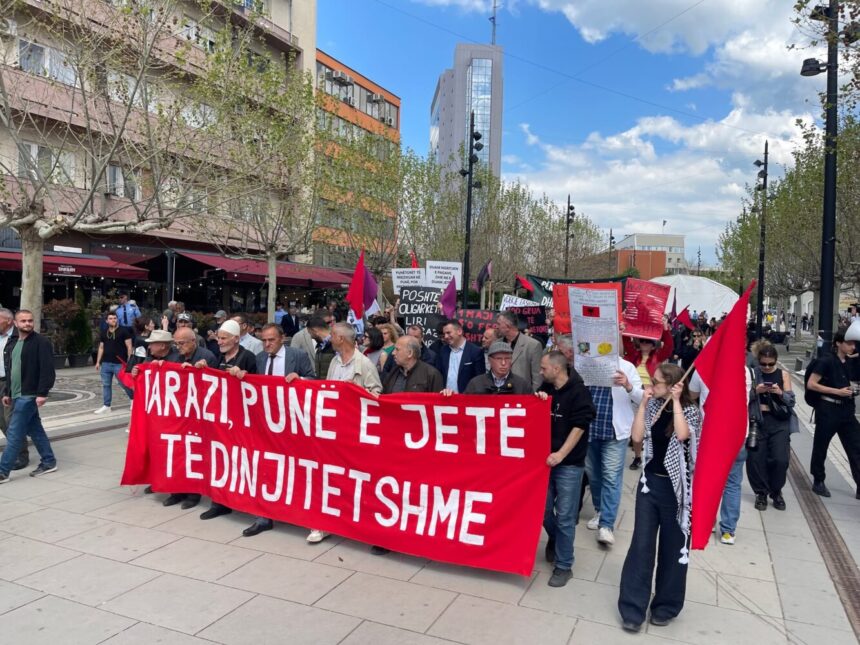On the occasion of International Workers’ Day, the New Union of KEK, the Feminist Collective, the Social Center “Përpjekja”, and independent activists—joined by other labor unions—organized a protest march in Prishtina to raise their voices against the growing injustices faced by workers across Kosovo.
The protest highlighted pressing concerns such as harsh working conditions, rampant inflation, and the persistent lack of labor rights.
Speaking at the demonstration, Nexhat Llumnica, head of the New Union of KEK, emphasized the urgency of the protest, especially for energy sector workers who, he stated, are being exploited.
“Today is May 1, a symbolic day of protest worldwide. We’ve gathered here because we have every reason to protest. Inflation has skyrocketed, especially regarding electricity prices and related products. KEK workers labor under risk, jeopardize their health, and even lose their lives—1% of our workforce has died from what we suspect are occupational diseases—while KEDS profits immensely. Since 2019, KEK sells electricity at €29.50, yet KEDS has quadrupled its sale price. We do the work, they grow rich. We demand wage increases and full respect of our legal rights,” said Llumnica.
On another front, Anita Nitaj of the Feminist Collective addressed the gendered dimension of labor injustice, shedding light on the invisible and unpaid labor women perform daily.
“We’ve gathered today not just to commemorate May 1, but to speak out against the injustices burdening us. Women in our society work twice—once in the workplace, and again at home, where their labor is unseen, unpaid, and unrecognized. When the economy is discussed, women are invisible. The minimum wage in Kosovo doesn’t support life—it barely supports survival. Every month, workers are faced with impossible choices: rent or medicine? Food or electricity? And when they speak up, they’re told to be grateful for even having a job. But this isn’t work—it’s exploitation. In less than six months, ten workers have died at work, not due to accidents, but because of neglect, poor conditions, and disregard for human life,” Nitaj declared.
The protest served as a collective call for structural reforms, economic justice, and dignity for all workers, regardless of gender or sector.







